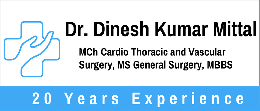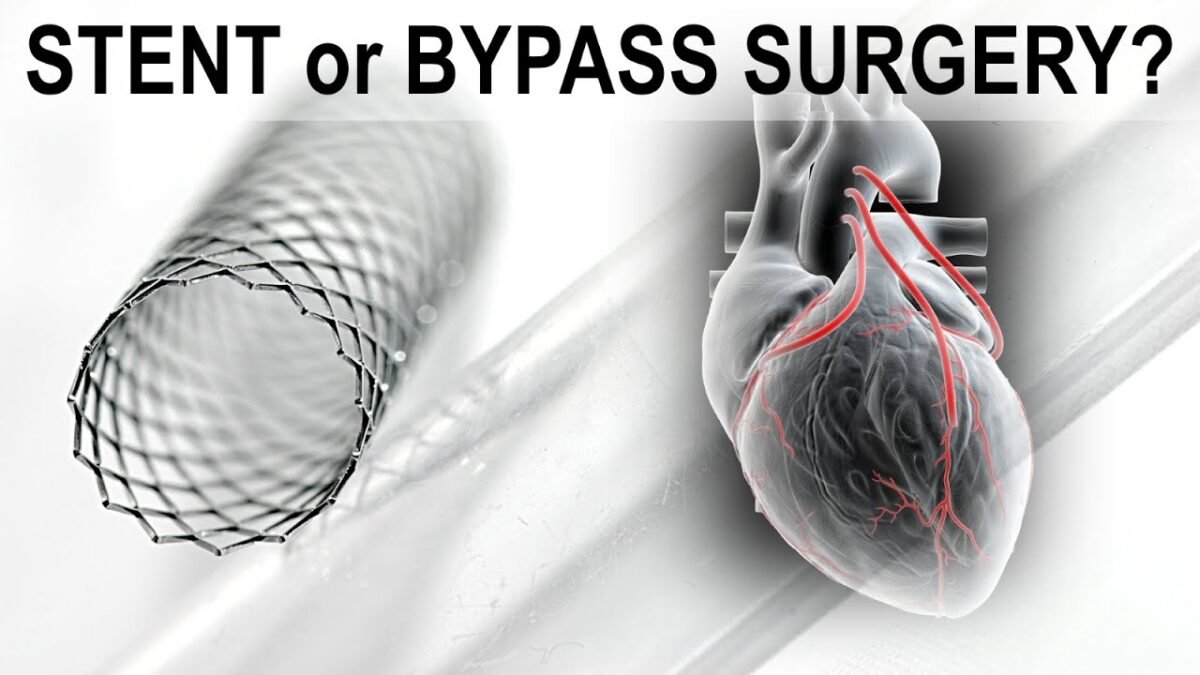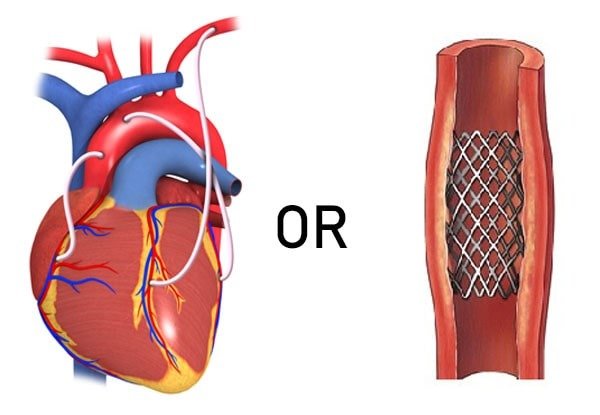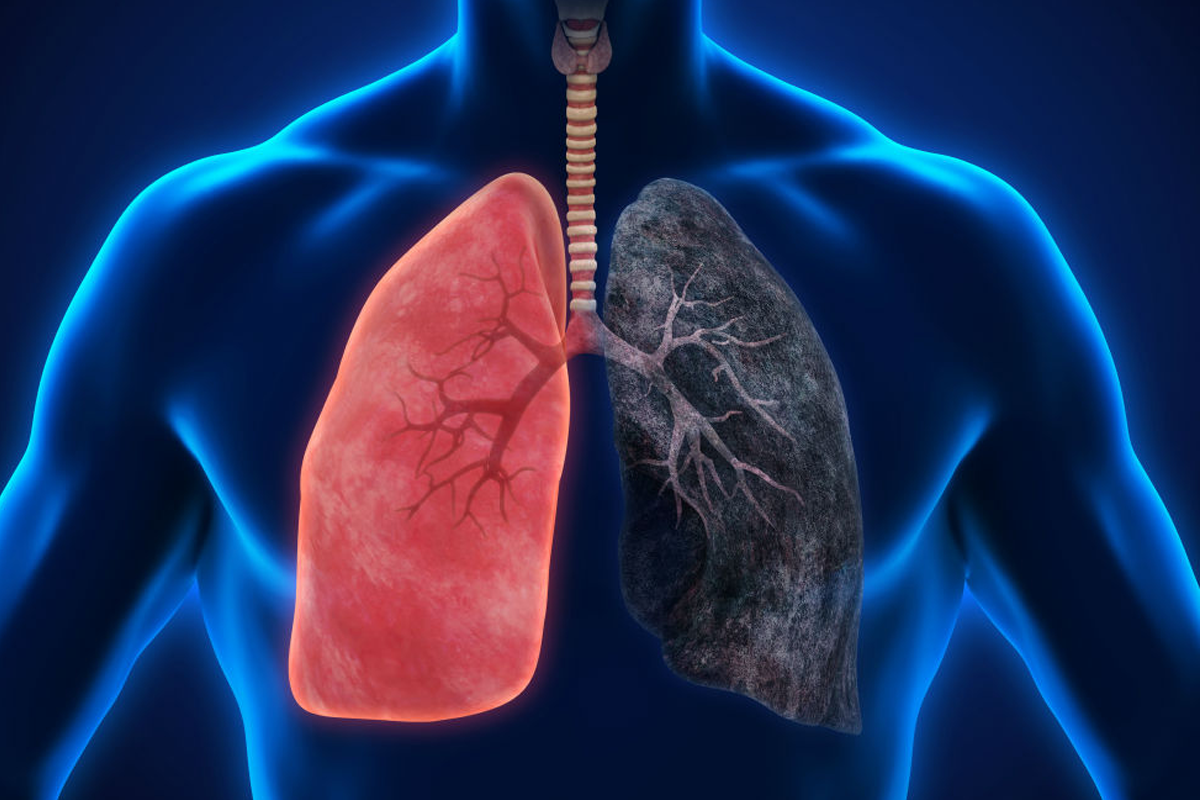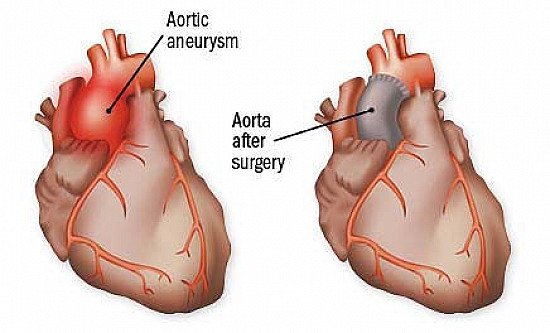Learn about the latest trends, expert insights, and engaging stories in our blog – a hub of information crafted to enrich your mind and inspire positive change.
Blog list
The human heart and lungs work tirelessly to keep us alive, pumping oxygen-rich blood throughout the body. However, when these vital organs face serious complications, timely medical intervention is essential. Cardiothoracic surgeons specialise in treating conditions related to the heart, lungs, and chest.
Research shows that timely intervention in cardiothoracic surgery can improve survival rates, with minimally invasive coronary artery bypass grafting showing a 96.1% survival rate over three years.
But how do you know when it’s time to see one? In this blog, we’ll discuss the key symptoms that indicate the need for a cardiothoracic consultation.
Who is a Cardiothoracic Surgeon?
A cardiothoracic surgeon is a highly specialised doctor who performs surgeries on the heart, lungs, esophagus, and other organs within the chest. They handle critical conditions like heart disease, lung cancer, and blocked arteries, among others, using both traditional and minimally invasive techniques.
While cardiologists focus on diagnosing and managing heart conditions with medications and lifestyle changes, cardiothoracic surgeons step in when surgery is needed for more advanced or complex issues. Essentially, cardiologists manage heart health through non-surgical means, while cardiothoracic surgeons perform surgery to provide solutions when the stakes are higher.
What are the Key Symptoms that Require a Consultation with a Cardiothoracic Surgeon?
Several key indicators can signal when it’s time to consult a cardiothoracic surgeon. Recognising these signs of heart and lung problems is essential for timely intervention and appropriate care.
- Persistent Chest Pain – Ongoing or radiating chest pain may indicate blocked arteries, heart disease, or an aortic aneurysm.
- Shortness of Breath – Difficulty breathing, even at rest or with minimal exertion, could signal heart failure, lung disease, or valve dysfunction.
- Irregular Heartbeat – Frequent palpitations, rapid or slow heartbeats, and dizziness may indicate arrhythmia or structural heart issues.
- Severe Fatigue – Unexplained tiredness and weakness could be due to reduced blood flow from heart valve disease or coronary artery disease.
- Swelling in Legs & Abdomen – Fluid retention in the lower body or abdomen may be a sign of heart failure or poor circulation.
- Uncontrolled High Blood Pressure – Resistant hypertension that doesn’t respond to medication may point to narrowed arteries or aneurysms.
- Frequent Lung Infections – Recurrent pneumonia, chronic cough, or coughing up blood could indicate lung disease or fluid buildup from heart failure.
- Worsening Heart/Lung Disease – If an existing heart or lung condition worsens with symptoms like chest pain or breathlessness, surgical treatment may be needed.
- Unexplained Weight Loss – Sudden weight loss, loss of appetite, and fatigue could be warning signs of severe heart or lung conditions.
- Issues After Heart Surgery – If symptoms like chest pain, shortness of breath, or fatigue return after surgery or stent placement, further evaluation is necessary.
Dr. Dinesh Mittal says, “These symptoms aren’t just a signal—they’re a call for action. The sooner we catch these warning signs, the better equipped we are to stop the problem from escalating.”
What are Some Common Conditions that Require Surgery?
Several heart and lung conditions may require surgical intervention when conservative treatments are insufficient. Some of the most common ones include:
- Coronary Artery Disease & Bypass Surgery
Coronary artery disease occurs when the arteries supplying blood to the heart become narrowed or blocked, potentially leading to a heart attack. If lifestyle changes and medications fail, coronary artery bypass grafting (CABG) surgery may be necessary to restore proper blood flow. - Heart Valve Disorders & Valve Replacement
Damaged or malfunctioning heart valves can cause symptoms like shortness of breath and fatigue. In cases of severe valve disease, valve replacement or repair surgery is essential to restore normal heart function. - Lung Cancer & Lung Surgery
Lung cancer may require surgical resection to remove tumors and improve survival rates. Depending on the stage and location of the tumour, a portion of the lung may need to be removed, often followed by chemotherapy or radiation. - Esophageal Cancer & GERD-related Surgery
Severe cases of gastroesophageal reflux disease (GERD) or esophageal cancer may require surgical interventions, such as esophagectomy, to remove damaged tissue or prevent further complications. - Congenital Heart Defects & Repair Surgery
Children or adults with congenital heart defects may require surgery to correct abnormalities such as a hole in the heart or abnormal valve function to ensure proper blood circulation and prevent future complications.
A patient of Dr. Dinesh who underwent aortic valve replacement explained: “Before surgery, I struggled just to walk to the local shop without feeling winded and exhausted. The operation was a success, and the care I received afterward was incredible. Now, weeks later, I can walk the dogs and do things around the house without any trouble.”
How to Prepare for a Consultation?
There are various important aspects you should consider before going for a consultation. Some of them are:
- List Symptoms and Medical History: Be ready to discuss your symptoms, medical history, and any treatments you’ve already tried.
- Prepare Questions About Treatment Options: Write down questions you have regarding surgery, recovery, and alternatives.
- Know About Diagnostic Tests: Familiarise yourself with standard tests like ECGs, angiography, and CT scans, as these may be required to diagnose your condition.
A patient of Dr. Dinesh shared: “I’m incredibly grateful to Dr. Mittal for his expert care and guidance. After surgery, my breathing improved, and I feel more energetic thanks to his advice and the recommended exercises. Thank you, Dr. Mittal, for giving me a new lease on life!”
Conclusion
Ignoring early symptoms of heart and lung disease can lead to severe complications, including heart failure, stroke, or sudden cardiac arrest. If you or a loved one experiences any of the symptoms mentioned above, do not hesitate to consult a cardiothoracic surgeon.
Early diagnosis and timely medical intervention can improve treatment outcomes and enhance the quality of life. If you have concerns about your heart or lung health, schedule a consultation with a specialist today.
FAQs
1. Is Cardiothoracic Surgery Always Necessary?
No, heart and lung conditions can often be managed through lifestyle adjustments and medication. Surgery becomes necessary in more serious cases.
2. What are the Associated Risks with Cardiothoracic Surgery?
As with any surgical procedure, cardiothoracic surgery carries potential risks, such as bleeding and infection. It is crucial to discuss these openly with your medical professional before making any decisions.
3. What is the Typical Cost of Cardiothoracic Surgery?
The cost of cardiothoracic surgery in India averages around ₹3,55,000. However, this can vary depending on the specific procedure, the hospital, and your insurance coverage. Discuss potential costs with your surgeon’s office and your insurance provider.
4. Can I Live a Normal Life After Cardiothoracic Surgery?
Many patients can return to a normal life after cardiothoracic surgery. While some lifestyle adjustments may be necessary, successful surgery can significantly improve quality of life and allow you to resume most of your usual activities. Your surgeon will provide specific guidance based on your individual situation.
5. How Do I Find a Qualified Cardiothoracic Surgeon?
Seek a referral from your doctor or contact your local medical board to find a well-qualified cardiothoracic surgeon. Always check for board certification and experience in the specific procedure you may require.
Explore more blogs: Top 5 Early Signs of Cardiovascular Diseases Everyone Should Know
In India, cardiovascular disorders are becoming a bigger problem, impacting millions of people annually. Vascular disease is one of the most prevalent types of these illnesses, in which blood supply to essential organs is restricted due to artery narrowing or blockage. Serious side effects like heart attacks, strokes, and limb amputation may result from these disorders if left untreated.
Research indicates that in India, cardiovascular diseases (CVDs) contributed to 28.1% of total deaths and 14.1% of total disability-adjusted life years (DALYs) in 2016. Recent advances in cardiovascular treatment are changing this landscape. Stent placement, a minimally invasive procedure to restore blood flow, has become an increasingly important tool in addressing coronary artery disease, a key contributor to CVD in India.
Renowned cardio surgeon Dr. Dinesh highlights, “Many people suffer from vascular problems that should have been addressed sooner. With advancements in technology, we now have a wider array of treatment options available, including less invasive approaches like stent placement. Determining the most effective approach – whether it’s traditional open surgery or a newer technique – requires a comprehensive understanding of the patient’s individual needs and the latest evidence-based practices.”
This blog explores key factors influencing the decision between stent placement and open vascular surgery. It also highlights the differences between stents and open vascular surgery, highlighting how these treatment options impact patients, their risks and benefits, and the importance of consulting with specialists to make informed decisions.
What is Vascular Disease?
Vascular disease describes disorders that impair blood flow by affecting the arteries, veins, and lymphatic vessels. Atherosclerosis is a major cause of vascular disease, in which fatty deposits called plaque accumulate in the artery walls, narrowing and hardening them.
Common types of vascular disease include:
- Coronary artery disease (CAD): Affects the heart’s arteries.
- Peripheral artery disease (PAD): Affects the blood vessels in the limbs, particularly the legs.
- Carotid artery disease: Affects the arteries supplying the brain, increasing the risk of stroke.
- Aneurysms: Weak spots in the artery walls that can bulge and rupture.
How Does Vascular Disease Affect You?
Vascular diseases affect individuals in various ways, contingent upon the location and severity of the blockage or narrowing. The impact can range from mild to life-threatening:
- Chest Pain (Angina): Narrowed coronary arteries can cause chest pain or discomfort, especially during physical activity or stress.
- Leg Pain or Cramping: Peripheral artery disease can cause pain, cramping, or fatigue in the legs and feet, particularly during exercise.
- Stroke: Blockage or rupture of arteries supplying the brain can lead to stroke, resulting in neurological deficits such as weakness, speech difficulties, or paralysis.
- Kidney Damage: Reduced blood flow to the kidneys can impair their function and lead to kidney disease.
- Amputation: In severe cases of peripheral artery disease, restricted blood flow can lead to tissue damage and potentially require amputation of a limb.
A patient shares his experience: “I had constant leg pain that made even walking unbearable. After consulting with Dr. Dinesh, I was hopeful again. The procedure he recommended gave me a chance to live pain-free.”
What Procedures are Used to Treat Vascular Disease?
There are several treatment options for vascular diseases, each tailored to the severity and location of the blockage:
- Medication: For milder cases, medications to manage blood pressure and cholesterol levels and prevent blood clots may be prescribed.
- Angioplasty and Stent Placement: This minimally invasive procedure involves using a catheter to widen the blocked artery with a balloon and then placing a stent (a small mesh tube) to keep the artery open.
- Bypass Surgery: When arteries are severely blocked, bypass surgery creates a new route for blood flow around the obstruction using healthy blood vessels from elsewhere in the body.
- Endarterectomy: A procedure where plaque buildup is surgically removed from inside the artery.
- Open Vascular Surgery: A broader term that includes procedures like bypass surgery and endarterectomy. This involves making larger incisions to access and treat the affected blood vessels directly, often used when minimally invasive methods are not an option.
Each option is considered based on the patient’s health, the location of the blockage, and the severity of the condition. A thorough diagnosis is crucial in determining the best approach.
Dr. Dinesh Mittal adds, “Every patient’s needs are unique, and the right treatment plan is key to improving vascular health. Early intervention often leads to better outcomes and a quicker recovery.”
Stent vs Bypass Surgery: What Should You Consider?
The decision of stent placement vs bypass surgery is complex and based on many factors. Here are key considerations:
- Location and Extent of Blockage: Stent placement is often preferred for shorter, more accessible blockages. Bypass surgery is generally considered for longer, more complex blockages or when multiple arteries are affected.
- Patient Health: Stent placement is less invasive and has a faster recovery time, making it a better option for patients who are not suitable for major surgery due to age or other health conditions.
- The severity of Symptoms: Patients with severe symptoms, such as debilitating chest pain or limb ischaemia, may require more aggressive treatment, such as bypass surgery.
- Risk Factors: The presence of other risk factors, such as diabetes, smoking, and high blood pressure, can influence the choice of treatment.
- Long-Term Outcomes: Both stent placement and bypass surgery can effectively relieve symptoms and improve blood flow. However, bypass surgery may have better long-term outcomes in certain situations, such as in patients with multiple blockages in the coronary arteries.
Therefore, the choice between stent placement and bypass surgery is a complex, individualised decision requiring careful consideration of various factors in consultation with a physician.
When to Choose Stent Placement Over Open Surgery?
Stent placement is often the preferred option due to its less invasive nature. However, it should be evaluated based on the patient’s condition:
- Shorter and Accessible Blockages: Stent placement is best for localised, shorter blockages that can be accessed easily with a catheter.
- Patient Health: For patients with underlying conditions or those who cannot undergo major surgery, stent placement offers a minimally invasive option with faster recovery times.
Thus, stent placement is favored for specific blockage types and patients unsuitable for major surgery due to its less invasive nature and faster recovery.
When Open Surgery is the Best Option?
While stent placement is often the preferred option, there are situations where open surgery is more effective. Dr. Dinesh adds, “In certain complex cases, open surgery offers a more permanent solution. It’s important to assess each patient’s unique condition before deciding on the treatment plan.”
- Complex or Extensive Blockages: When blockages are too long, severe, or located in hard-to-reach arteries.
- Failed Stenting Attempts: In some cases, stenting may not work, especially if the blockage is too severe or complex to access.
Dr. Dinesh’s patient expressed emotions by saying “Doctors told me my case was too complicated—stents simply wouldn’t work. I was terrified of open surgery, but Dr. Dinesh explained everything so clearly. His reassurance gave me the confidence to move forward, knowing it was the best way to regain my health.”
What are the Pros and Cons of Stent Placement and Open Vascular Surgery?
Both options have several benefits and drawbacks. Some of them are listed here:
Stent Placement (Minimally Invasive)
- Approach: Similar to repairing a pipe from within, a catheter delivers a mesh stent to keep the artery open.
- Best For: Short, accessible blockages; patients unable to undergo major surgery.
- Benefits: Smaller incisions, reduced pain, quicker recovery.
- Limitations: Ineffective for complex, severely calcified, or hard-to-reach blockages.
Open Vascular Surgery (Bypass)
- Approach: Comparable to replacing a damaged section of a pipe, blood flow is rerouted using a grafted vessel.
- Best For: Long or complex blockages, severely damaged arteries, or cases requiring a long-term solution.
- Benefits: Provides direct access to arteries, offering a durable solution for advanced vascular disease.
- Limitations: More invasive, longer recovery, and higher risk of complications
Conclusion
When deciding between stent placement and open surgery, the choice depends on factors such as blockage location, patient health, and symptom severity. Stent placement offers a quicker recovery with a minimally invasive approach, while open surgery may be required for more complex or multiple blockages. Consulting a specialist is crucial to evaluate your condition and recommend the most suitable treatment plan.
If you’re experiencing vascular problems, don’t delay. Reach out today to explore your treatment options and discover the best solution for your unique health needs. Your heart health deserves the care and attention it needs for a healthier future!
FAQs
1. When is stent placement preferred over open surgery?
Stent placement is typically preferred for shorter, accessible blockages in the arteries, especially for patients who are not suitable for major surgery due to age or other health conditions.
2. What are the most common types of stents used in vascular procedures?
Standard stents include bare-metal stents, drug-eluting stents (DES), and bioresorbable stents.
3. How long does it take to recover after stent placement or bypass surgery?
Recovery after stent placement usually takes 1-2 weeks, while bypass surgery requires a more extended recovery period, typically 4-6 weeks or more, depending on the patient’s health.
4. What are the potential risks of stent placement?
Potential risks include bleeding, infection, blood clots, restenosis (re-narrowing of the artery), and allergic reactions to contrast dye.
5. What is the cost difference between stent placement and bypass surgery?
Stent placement generally costs between ₹1,50,000 to ₹3,00,000, while bypass surgery can range from ₹3,00,000 to ₹7,00,000, depending on factors like the hospital, patient condition, and treatment complexity.
Explore More Blogs: Vascular Surgery: Types, Benefits, and Role in Preventing Life-Threatening Complications
Copyright by www.drdineshkumarmittal.com 2024. All rights reserved.
Copyright by BoldThemes 2018. All rights reserved.
